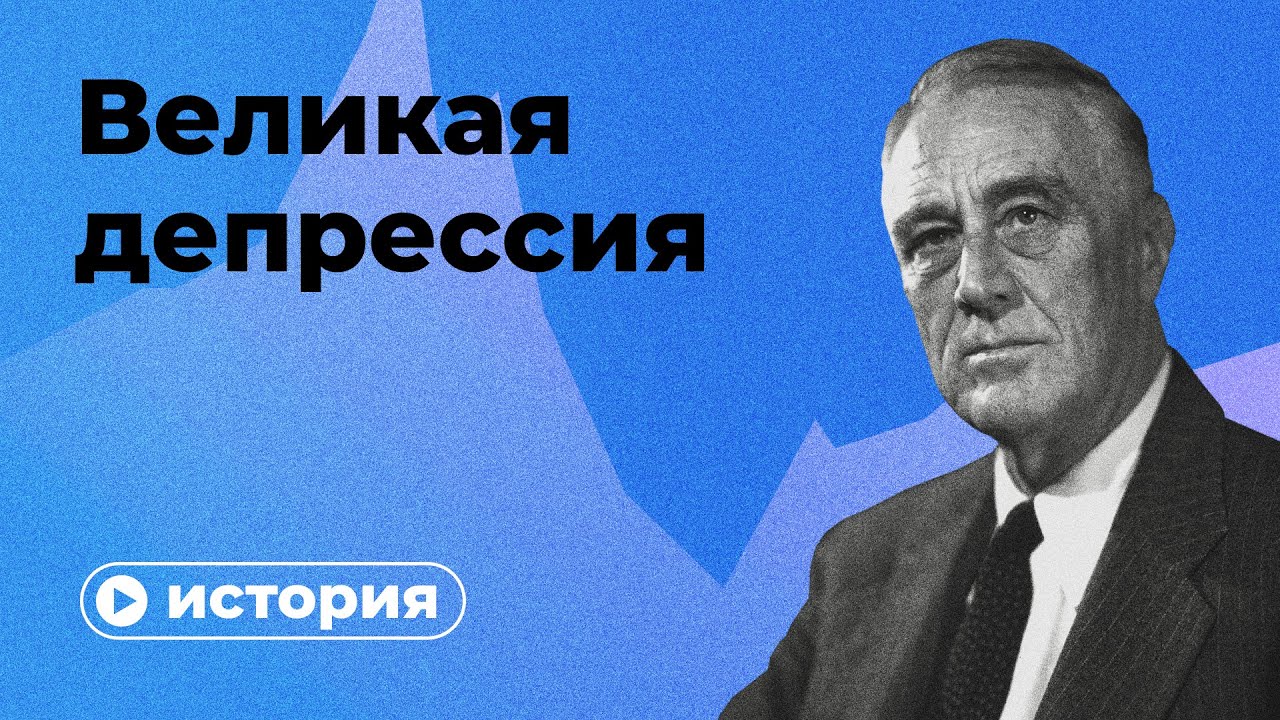The Great Depression
Summary
TLDRThe Daily Dose explores the Great Depression, triggered by the 1929 Wall Street crash, which led to massive unemployment and bank failures. President Hoover's inaction labeled him, while FDR's New Deal policies, including the TVA and WPA, provided jobs and financial reforms, stabilizing the economy. The Depression's global impact fueled extremism, including Hitler's rise. Recovery began with WWII, marking a dark chapter in American history.
Takeaways
- 📈 **Economic Boom**: The U.S. economy doubled its wealth during the Roaring 20s, leading to excessive speculation on Wall Street.
- 💔 **Market Crash**: The stock market crash began on 'Black Thursday', October 24, 1929, with a record 12.9 million shares sold, followed by 'Black Tuesday'.
- 📉 **Economic Downturn**: Industrial output declined, unemployment rose, and consumer confidence plummeted post-crash.
- 🏦 **Bank Failures**: Widespread bank failures occurred as loan defaults increased, challenging banks' solvency.
- 🏙️ **Urban Hardship**: Cities saw the rise of bread lines, soup kitchens, and homeless encampments known as 'Hoovervilles'.
- 🌾 **Rural Exodus**: Farmers from the Dust Bowl migrated to cities seeking employment, exacerbating urban problems.
- 🗳️ **Political Change**: Herbert Hoover's laissez-faire approach led to the election of Franklin D. Roosevelt, who promised intervention.
- 🌟 **New Deal Policies**: FDR's New Deal included programs like the TVA and WPA, providing government-funded jobs and infrastructure.
- 💼 **Financial Reforms**: The FDIC and SEC were established to protect bank accounts and regulate financial markets, respectively.
- 🌐 **Global Impact**: The Great Depression fueled extremist movements in Europe, including the rise of Adolf Hitler.
- ⏳ **Recovery Timeline**: While the Depression is often said to have ended in 1939, the U.S. economy fully recovered with the onset of World War II in 1941.
Q & A
What was the state of the U.S. economy during the Roaring 20s?
-The U.S. economy nearly doubled its wealth during the Roaring 20s, leading to reckless over-speculation on Wall Street.
What events culminated in the stock market crash of 1929?
-The stock market crash of 1929 was preceded by declining industrial output, rising unemployment, a widespread drought in farming regions, and a banking sector bloated with questionable loans.
What was the significance of October 24, 1929, known as Black Thursday?
-On Black Thursday, panicked investors sold off a record 12.9 million shares, marking the beginning of the stock market crash.
How did the stock market crash affect individual fortunes?
-The stock market crash wiped out millions of individual fortunes, leading to widespread bank failures and a decrease in consumer confidence.
What was the impact of the Great Depression on industrial production and employment?
-By 1931, the nation's industrial production had dropped by half, and unemployment rates soared, leading to lower wages and decreased consumer buying power.
What was the role of the Dust Bowl in the Great Depression?
-The Dust Bowl in the southern plains prompted additional mass migrations of destitute farmers seeking employment in cities, exacerbating the economic crisis.
What was President Herbert Hoover's approach to the economic crisis?
-President Hoover adopted a laissez-faire approach, failing to intervene in the ailing economy, which led to the naming of homeless encampments as Hoovervilles.
How did Franklin D. Roosevelt's policies address the Great Depression?
-FDR introduced the New Deal policies, including the Tennessee Valley Authority and the Works Progress Administration, which provided government-funded infrastructure employment to millions of Americans.
What was the purpose of the Federal Deposit Insurance Corporation (FDIC) established during the New Deal?
-The FDIC was established to protect individual bank accounts with government-backed assurances, increasing confidence in the banking system.
What was the role of the Securities and Exchange Commission (SEC) in preventing future stock market crashes?
-The SEC was created to apply regulation and oversight on all stock and commodity markets to prevent the kinds of abuses that led to the 1929 stock market crash.
How did the Great Depression influence global politics?
-The hardships of the Great Depression helped fuel the rise of extremist political movements in Europe, including Adolf Hitler's ascension to power in Germany.
What event is considered the economic turning point of the Great Depression?
-The true economic turnaround occurred in 1941 after the U.S. entered World War II, following the Japanese attack on Pearl Harbor.
Outlines

This section is available to paid users only. Please upgrade to access this part.
Upgrade NowMindmap

This section is available to paid users only. Please upgrade to access this part.
Upgrade NowKeywords

This section is available to paid users only. Please upgrade to access this part.
Upgrade NowHighlights

This section is available to paid users only. Please upgrade to access this part.
Upgrade NowTranscripts

This section is available to paid users only. Please upgrade to access this part.
Upgrade Now5.0 / 5 (0 votes)





